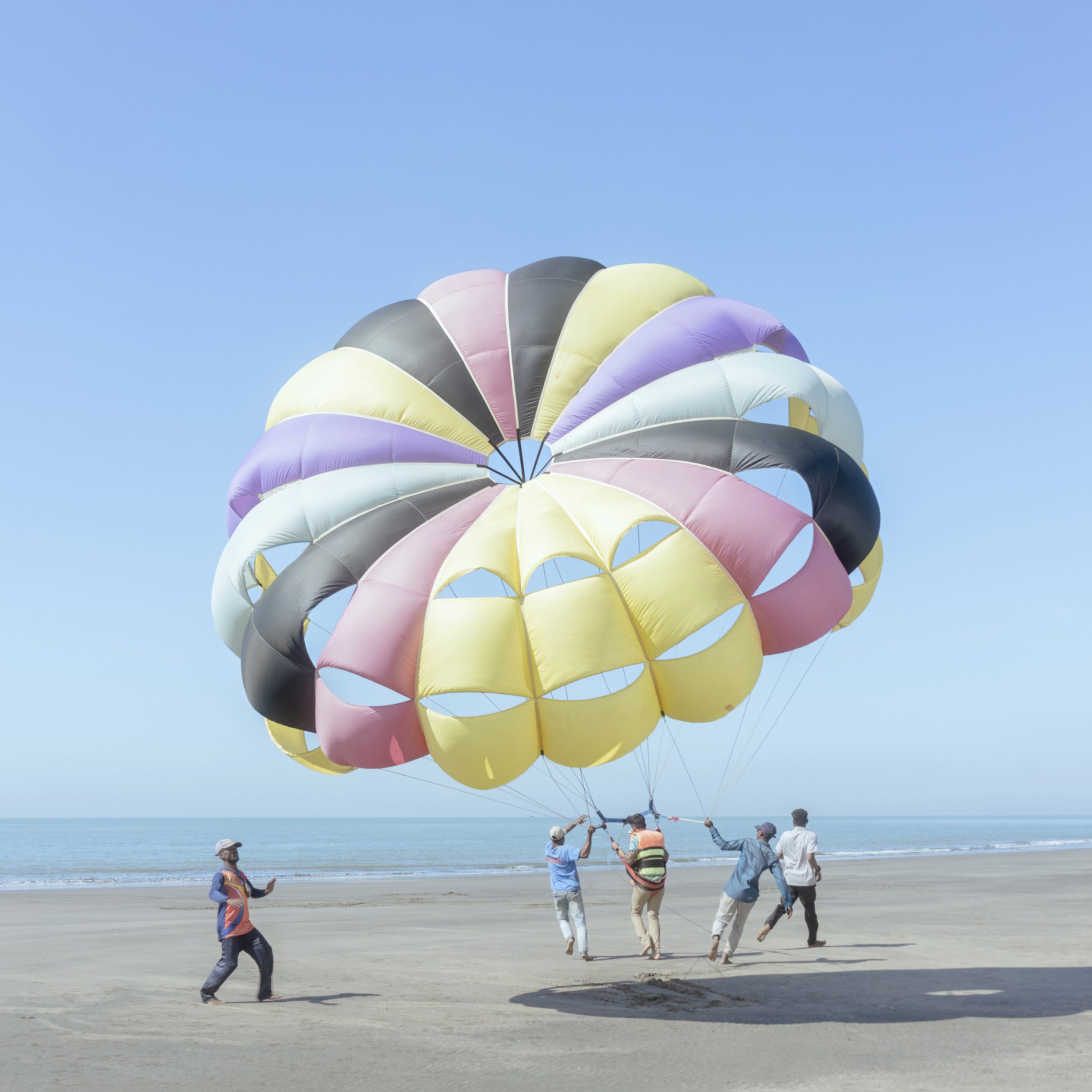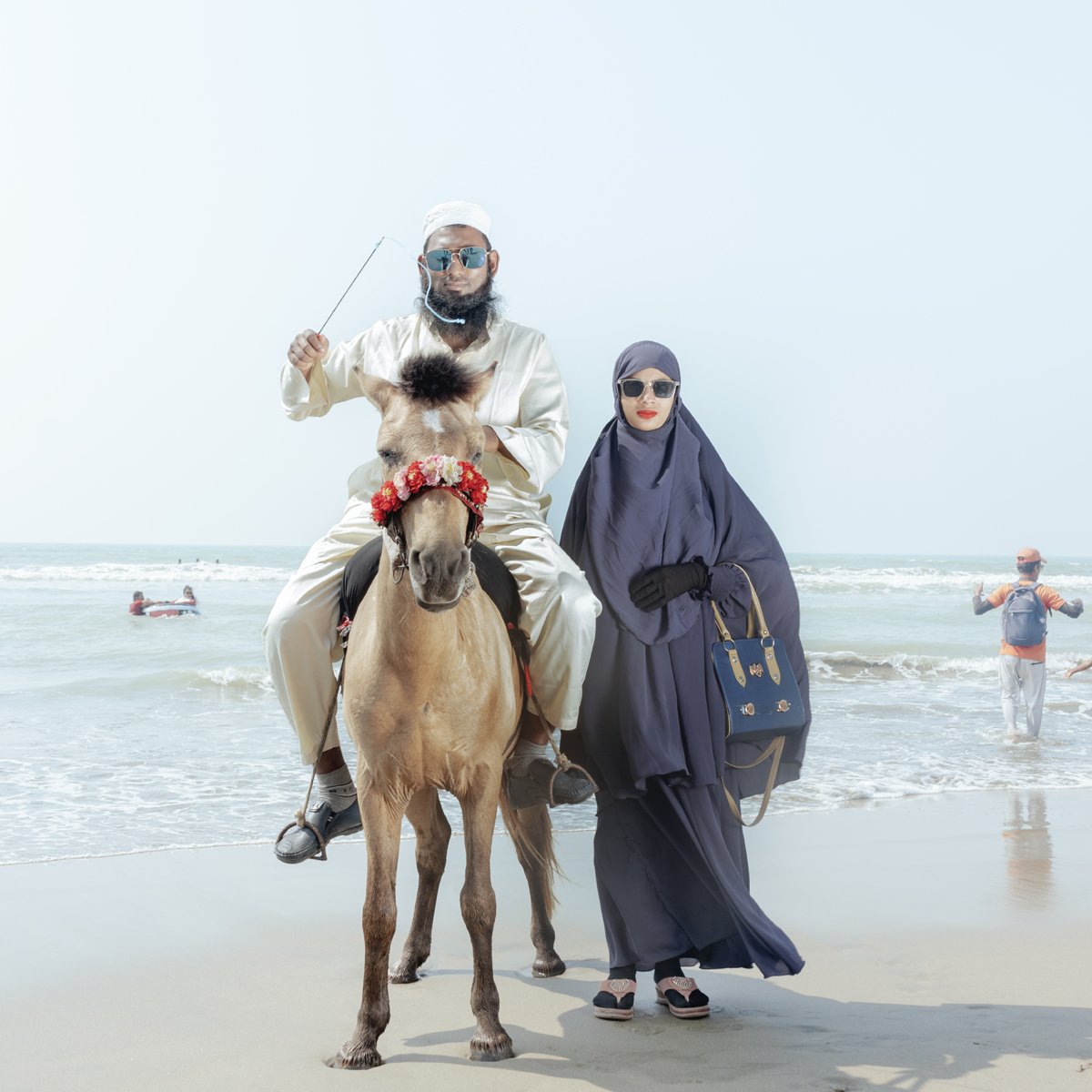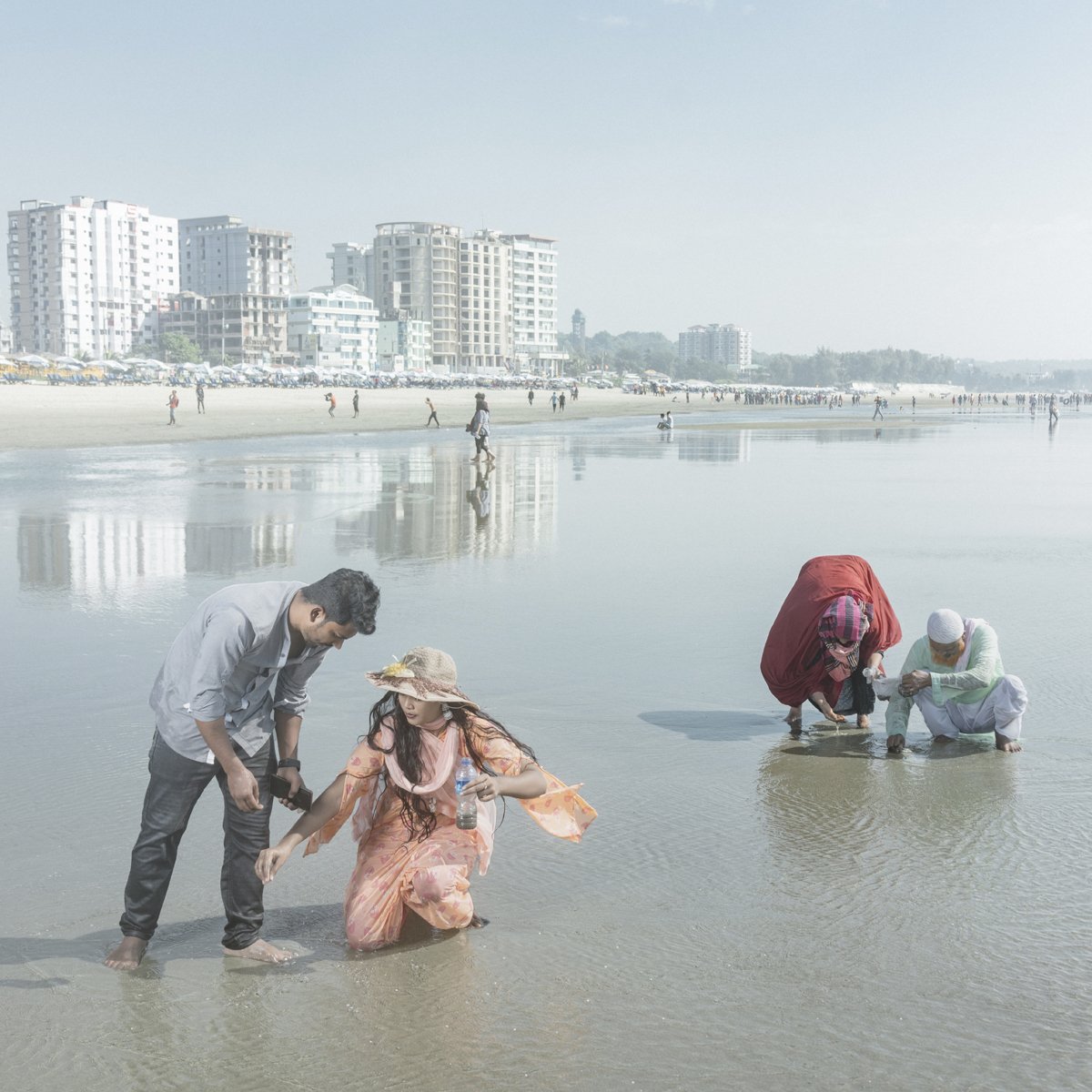
Sea Beach
-
Ismail Ferdous (b.1989) is a Bangladeshi photographer, living in New York City. He is a member of Agence VU' in Paris and a faculty member at thenternational Center of Photography in New York. Raised in Dhaka, Ismail cultivated his passion for photography self-taught while attending business school. He is deeply interested in human interest stories that resonate with the nuances of the contemporary world.
Over the past decade, some of his most influential works include a multidisciplinary project that addresses the devastating effects of the "fast fashion" industry on Bangladeshi workers through his documentary photos and films. His extensive work on migrations and refugees, spanning four continents, weaves narratives from Syria, Ukraine, Mexico, France, and Bangladesh. His projects also focused on the topic of race and diversity through the stories of South Asians in the United States and a portrait essay on immigrants in the U.S. meat industry. Presently, Ismail delves into the cultural confluence of life as an immigrant in the U.S., juxtaposed against his Bengali roots, which is reflected in his ongoing "Sea Beach" photography series which began in 2020.
Ferdous has participated in over 30 exhibitions at esteemed galleries, festivals, and museums, including Les Rencontres d'Arles, World Press Photo, The San Diego Museum of Art, and the Kiyosato Museum of Photographic Arts. He has worked with publications such as The New York Times Magazine, Washington Post, Geo Magazine, and M Le magazine du Monde, among others. A frequent contributor to National Geographic Magazine, Ismail's photographic prowess has earned him accolades such as the World Press Photo Award, Picture of the Year International, Alexa Foundation Grant, Getty Images Instagram Grant, National Geographic Grant, and several other prestigious honors in the realm of photography.
-
Cox's Bazar is located on the southern tip of Bangladesh. Where the baby-blue waters of the Bay of Bengal caress its sandy, muddy, and rocky shores, the coastal paradise of Cox's Bazar distinguishes itself from more glamorous, westernized regional peers such as Pattaya in Thailand or Goa in India. Tourists arrive at the beach dressed in their finest, delicately approaching the shoreline. Their anticipation is palpable as they prepare to dip their feet in the brackish foam brought in by the tide. They stand like pilgrims at the end of a journey, content to gaze upon the horizon across the sea.
For Bangladeshis, this is a most exciting vacation destination. Serving as a highly desirable refuge from the relentless urbanism of the world's most densely populated country, Cox's Bazaar has become a melting pot of Bangladeshi culture. It is the place where every social class can afford a vacation.
Roving merchants seek out potential buyers among the tourists, offering candies and a wide range of goods. There is a notable lack of urgency, as if time itself is advocating the shedding of one's burdens while at the beach. The children yelp, but unlike in the city, there is no unhappy yelling in response from parents. The air carries the scent of salt and affection.
Amid this kaleidoscope, Ferdous is transported back to the corridors of his past, recalling the very moment when he first embarked on his pilgrimage to the wondrous realm of Cox's Bazar. In these scenes, reminiscent of those found within cherished family albums from every corner of the globe, profound reflection awaits. Whether it's children laughing infectiously during their first encounter with sandy shores, or a couple embracing tenderly against the vast, undulating waters, there's an inherent understanding that something greater than their individual selves is unfolding in this magical place.
COLLECTION
Limited Edition of 7
Limited Edition of 7
Limited Edition of 7
Limited Edition of 7
Limited Edition of 7
Limited Edition of 7
Limited Edition of 7
Limited Edition of 7
Limited Edition of 7
Limited Edition of 12
Limited Edition of 12
Limited Edition of 12
Limited Edition of 12














